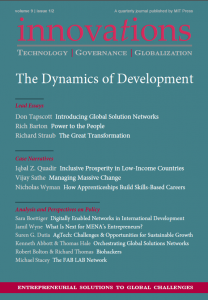Author and education and Unemployment expert Nicholas Wyman talks about the changing world economy, required skills to be a match for current jobs emerging in the job market and the opportunities to earn more through alternative career pathways. A practical set of solutions in his new 2015 book: Job U – How to Find Wealth & Success by Developing the Skills Companies Actually Need. visit www.jobubook.com for more details
The Three Best Places to Find Your Next Great Hire
Linked In –
With the hefty price tag attached to a bachelor’s degree these days—over $57,000 at a public university and much more at private colleges[1]—you might well expect recent college graduates to emerge from their expensive educations skilled up and job-ready. Unfortunately, even the loftiest peaks of the ivory tower do not necessasarily guarantee that college grads have what it takes to become your next great hire.
The truth is that despite the perceived value of a college degree, many business owners and recruiters are struggling to find recent graduates who have the practical and soft skills to succeed in the workplace. Even more troubling, there is a surprising gap between graduates’ perception of their own job-readiness and what employers are seeing in interviews. According to a survey of 2,000 graduates and 1,000 hiring managers, about half of recent grads believe they are adequately prepared to take on a job in their field of study. From the hiring managers’ perspective, it’s a very different story: fewer than two in five managers found recent graduates they’d interviewed to be job-ready.[2]
In a recent Wall Street Journal interview, sociologists Richard Arum and Josipa Roksa discussed their latest book, Aspiring Adults Adrift, which tackles the very question of whether today’s college students are getting value for their money. The answer, according to Arum and Roksa, is a resounding “no”.[3] Too many colleges, it seems, graduate students who are lacking in both practical skills and soft skills such as organization, financial planning and critical thinking.
Although a college degree does pay off for some in the long run, it’s clear that it does not necessarily equal job-readiness. So where else can managers and employers look for their next great hire?

1. A two-year college or vocational program.
With the cost of a four-year degree at a record high, many ambitious and motivated young people are rapidly discovering that a two-year vocational degree is the smarter option. Vocational programs are not only more likely to turn out candidates trained in the practical skills you need, but there is evidence that vocational training boosts confidence, work ethic, and high performance in other areas as well.[4]
This is one reason why many astute business leaders are forming partnerships with community colleges. These partnerships ensure that curriculum reflects the needs of local employers and companies so that students graduate with exactly the skills they need to succeed in the workplace.
2. Your own company.
The talent you’re looking for may already be working within your business. Increasingly, companies are finding their best people from the ranks of those ambitious existing employees, ready and eager to acquire a new set of skills. And in fact, Incorporating skills training into your business model, as many forward-thinking companies are doing right now, is far less expensive, time consuming, and risky than recruiting externally. In-house training opportunities build loyalty, encourage a learning environment across the board, and give motivated employees the chance to show you what they can do. Cultivating the talent you already have is a big step toward securing the future of your business.
3. Apprenticeship programs.
In April 2014, President Obama announced the launch of a $100 million competition for American Apprenticeship Grants, to be awarded to partnerships and organizations focused on expanding apprenticeship opportunities. Apprenticeships are making a comeback in the United States, and with good reason. Because their education is hands-on, apprentices learn the whole range of practical and soft skills they need to transition directly into jobs. According to the U.S. Department of Labor, nearly 9 out of 10 apprentices are employed upon finishing their training.
As apprenticeships gain momentum, employers are beginning to see that they can find skilled apprentices in a wide range of fields, even some high-tech areas that might surprise you. For example, the U.S. Office for Apprenticeships has recently registered apprenticeships in fields like computer programming, biotechnology and geospatial technology.
Thanks to the hands-on, real-world experience they learn under the direction of a skilled expert, apprentices build the communication, teamwork, and problem-solving abilities you may not see in the candidate fresh out of the ivory tower. The same is often true of students in vocational programs, as well as company staff who are eager for the chance to move up the ladder. Being able to see a direct pathway to success motivates these career-minded individuals to put their best effort forward, continuing to build on and improve their skills. And isn’t that just the kind of person you’d like to see as your next hire?
53% of College Grads Sitting at Home
Home & Family Finance is a popular radio show that airs in more than 64 markets across the United States and is also carried to U.S. military bases located overseas. Nicholas Wyman, IWSI Consulting CEO, discusses his book Job U with Paul Berry, a veteran broadcast journalist with more than 40 years of experience. Job U is all about developing the skills that companies actually need through practical, hands-on learning, such as that gained during apprenticeships and traineeships.
Audio Player
How Apprenticeships Build Skills-Based Careers

Nicholas Wyman, Founder and CEO of IWSI Consulting, has recently published an article in Innovations – the official journal of world renowned research institute, MIT (Massachusetts Institute of Technology).
For many Americans, the Obama administration’s recently publicized plan to invest billions of federal dollars in apprenticeship programs in the United States likely conjured up the image of Benjamin Franklin apprenticing as a printer, his first professional role.
Apprenticeships remain a fundamental, proven method of training individuals in what are likely high-skilled occupational areas, with hand-on learning processes that are directly supervised by skilled mentors. Today the effectiveness of these multiyear training commitments is measured by whether apprentices are hired by their employers upon completing their programs. If they are not, it’s likely that the apprenticeship program itself needs to be restructured.
In the United States, there are only 14 apprentices for every 1,000 workers, and 4 percent of U.S. employers end up hiring their own apprentices, according to the International Skills Standards Organization. By comparison, in my native Australia there are 40 apprentices for every 1,000 workers, and 27 percent of Aussie employers hire their apprentices. According to data from the Australian and U.S. governments, Australia will continue to outpace the U.S. in the level of apprenticeships through at least 2015.
Onsite work and mentoring are the core of the training model that today’s entry-level workers need in order to build and sustain lifelong careers. Strategically designed apprenticeship programs aggregate, monitor, and streamline the changing inputs and relationships required to promote workers and pave paths of sustainable employment.
To read the rest of the article about how apprenticeships build skills-based careers, download the PDF here.
What George Lucas, Frank Gehry and Nolan Ryan Have in Common


What do the award-winning filmmaker, world-renowned architect, and Baseball Hall of Fame pitcher have in common? Other than having achieved the height of success in their respective fields, none left high school and attended a high price-tag university. Instead, each of them attended community college. We could easily add a number of other great achievers to this list, including actor Tom Hanks, Pulitzer Prize winners Gwendolyn Brooks and Sam Shepard, and NASA astronaut Eileen Collins.
In the United States today, there is a common misconception that a traditional four-year college degree is the only logical choice for intelligent, motivated young people. The notables mentioned above (and many others) are proof that this is not the case. Successful careers are not handed out with college diplomas; they are built through imagination, passion, and dedication to getting the right education at the right time. These skills and others, which can easily be acquired at community colleges or through other types of vocational training are often the key ingredients in crafting a dream career.
Right now, there are so many exciting opportunities to re-define what a successful, rewarding, and lucrative career can look like. Far from being second-best, skills-based learning is now, more than ever, the way to make your dream career a reality: a college degree is not necessarily required. And I’m not just talking about low-paying or low-status jobs that (unfortunately) people tend to associate with community college. I’m talking about high-paying, highly technical jobs like computer programmers or master chefs or award-winning filmmakers. In researching for my book JOB U, I had the privilege of connecting with a number of people who have carved out their own unique, rewarding career paths in surprising ways. The common thread was not a four-year degree or diploma; it was that they followed their passions, going where their interests led them, and gaining the necessary skills along the way.
Douglas Gorenstein, for example, enjoys a career as a top photographer in New York City, specializing in headshots (the professional photos every aspiring actor needs for auditions and publicity). A respected performance photographer with television and stage experience as well as a published author, Douglas achieved his success without ever finishing college. Instead, he followed his passion for the theatre, first as an actor, and later discovered a love of photography. Through courses at the International Center of Photography and lots of practice, Douglas acquired the technical skills to turn his passion into a thriving career.
There’s also Kevin Burton, who opted for an electrical apprenticeship rather than college right out of high school. Through that, Kevin discovered she also had a passion for teaching and mentoring. Later in her career path, she went on to gain a humanities degree and is currently working on a law degree. Her passion is mentoring and advocating for apprentice electricians, so she’s created a career where she does exactly that. And she’s living proof that vocational learning has no ceiling; every new skill is a step up.
Douglas and Kevin are just two of countless examples of how skills-based learning can shape a career that is just right for the individual. In fact, many of the most motivated, creative people need non-traditional pathways, and there’s no reason those pathways can’t start at community college. How a Skills-Based Education Can Help Shape your Dream Career
1. Discover what you love to do (with minimal investment).
I mentioned Kevin, above, who chose not to go to college right out of high school because, at that point in time, she wasn’t sure what she wanted to study. Through vocational training, she discovered her real passions. What better way to discover what you enjoy than by trying it out? Just signing up for an online course or an introductory class at your local community college can give you an idea of what you want or don’t want to do. And, best of all, it’s much cheaper to test the waters this way than to sink thousands of dollars into a semester—or eight—at an expensive university.
2. Experience different ways to learn, including skills-based learning.
For many people, the traditional structure of college—sitting in a classroom and listening to a lecture—is a difficult way to learn. There are many different learning styles, and the typical classroom format only appeals to one of them. Many of us learn better by doing, and seeing results in the real world. Others benefit greatly from having the focused attention of a mentor, which is often an aspect of apprenticeships and traineeships. Vocational training provides limitless opportunities to learn in different ways and contexts, helping build confidence as you build skills.
3. Go where your interests lead you.
George Lucas first realized he was interested in filmmaking when he was a student at community college, where he practiced making short films with an 8 mm camera before going on to study film in greater depth. Rather than limiting what you can do, skills enable you to craft your career in the way that makes the most sense for you.

